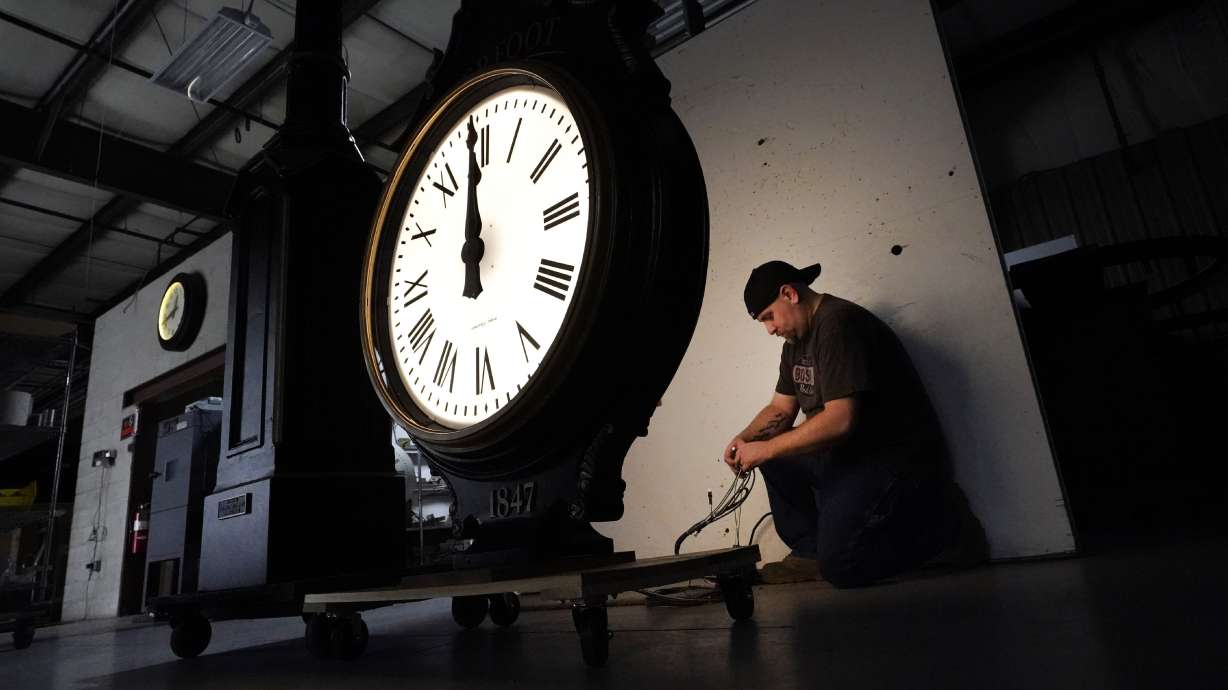Estimated read time: 2-3 minutes
This archived news story is available only for your personal, non-commercial use. Information in the story may be outdated or superseded by additional information. Reading or replaying the story in its archived form does not constitute a republication of the story.
SALT LAKE CITY — Daylight saving time in the summer means a maximum of 15 hours of daily sunlight in Utah, with the sun setting around 9 p.m. If the federally backed Sunshine Protection Act becomes law, people can expect those late sunsets even in the winter.
Late sunsets in the winter also mean even later sunrises if daylight saving time becomes permanent.
"A sunrise on Christmas day will be 8:50 in the morning and the sunset will be 6:05 at night," KSL Meteorologist Kevin Eubank told Dave and Dujanovic on KSL NewsRadio on Tuesday "Where you're really going to see this impact is going to be in the morning hours during the months of November, December, January (and) February."
Eubank also said getting up in the morning can be difficult when it is cold and snowy outside. Researchers have found that a lack of daylight exposure can be harmful to a person's mental health.
A Brigham Young University study reported by the Deseret News in 2016 shows that limited daylight exposure increased mental health distress, even for people affected by seasonal weather issues and/or air pollution. The study also found that increased exposure to daylight would decrease mental health distress.
BYU clinical professor Mark Beecher said researchers did not see cloudy or polluted days having as strong an effect on mental health as the number of daylight hours subjects were exposed to — so daylight exposure had more of an impact on mental health than other environmental factors.
A similar Danish study from the same year also found that limited daylight hours had an adverse effect on mental health, affecting a person's circadian rhythm. With more than 1.6 billion people worldwide impacted by the time change every year, researchers pointed to an 11% increase in depressive episodes resulting in psychiatric hospitalizations for the weeks and months following the time change.
The Sunshine Protection Act, sponsored by U.S. Sen. Marco Rubio, R-Fla., would make it so that Americans would no longer have to adjust their clocks twice a year. It passed the Senate on March 15 and now awaits a vote from the House before it would become new law.
Various Utah lawmakers have attempted for years to make changes to the biannual process of changing the clocks, but existing federal policy has prohibited the change until other states are on the same page. Rubio's bill would make daylight saving time permanent for the majority of the U.S.









